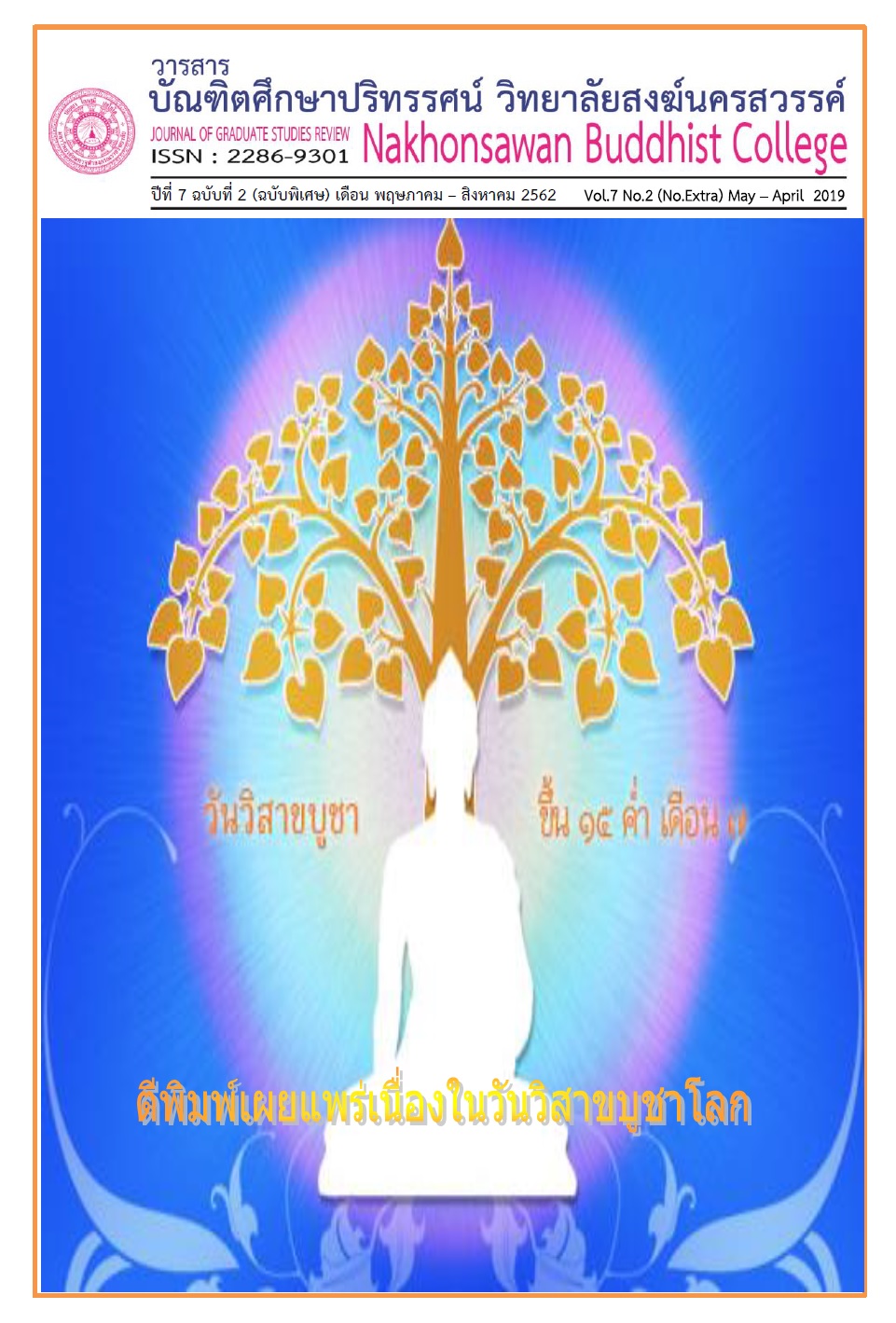Model of Administrative Management According to Sappurisadhamma Principle of Music School for the Lower Northern Area
Main Article Content
Abstract
This research paper has 3 objectives which are (1) to study the administrative management of music school for the lower northern area (2) to generate an administrative management model based on the 7 Sappurisadhamma Principle of music school for the lower northern area, and (3) to evaluate the administrative management model according to the 7 Sappurisadhamma Principle of music school for the lower northern area.
This study is a qualitative research which is divided into 3 procedures: (1) to study the administrative management of music school for the lower northern area by using semi-structured interview for gathering and analyzing an important data from 8 executives of music school (2) to generate an administrative management model based on the 7 Sappurisadhamma Principle of music school for the lower northern area by using focus group discussion and content analysis for gathering an important data from 8 people in focus group, and (3) to evaluate the administrative management model according to the 7 Sappurisadhamma Principle of music school for the lower northern area from 10 executives of music school. The instrument used to collect data was a questionnaire on the readiness which was divided into four fields accuracy, aptitude, feasibility and benefit. The data were analyzed by using descriptive statistics, mean (x) and standard deviation (S.D.).
The results of this dissertation found that: The administrative management model based on the seven Sappurisadhamma Principle of music school for the lower northern area: 1) an academic in accordance with the seven Sappurisadhamma Principle must prepare an academic administration plan to cover consistently with music context for academic evaluation. The academic brought an information technology to develop and support the academic music management system. The academic arranged a curriculum for identical with music teaching activities. The academic emphasized on music practical skill. The academic administrated by following the Office of the Private Education Commission 2) budget, according to the seven Sappurisadhamma Principle, must prepared in advance before and after system of music school. There was a proper budget management, ordering the necessity, managing the budget thoroughly, recording of revenues and expenses for development, making a supplies registration, auditing adjustment thoroughly, setting up a budget to buy modern musical instruments which is excellent quality, and a budget to maintain music instruments 3) Personnel, according to the seven Sappurisadhamma Principle, must encourage music teachers to receive training for increase teaching effectiveness, setting a standard to work for each position, reinforcing interpersonal relationship, and welcoming guardians and students by creating warm, friendly and cozy atmosphere. When teachers and learners have a pleasant interaction, students will love to study music, and 4) general work, according to the seven Sappurisadhamma Principle, must provide knowledge and understanding of music school activities, creating annual advertising plan, decorating school to attract students, giving priority to lounges, bathroom, classroom registration room, rest room by cleaning tidily. The general organized a standard working for teachers in each instrument. Personnel must know every school job for preventing any damage that will occur to work by assessment daily.


